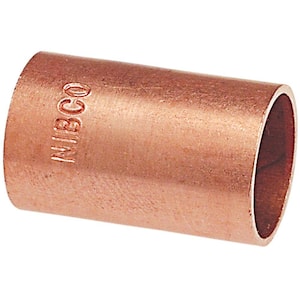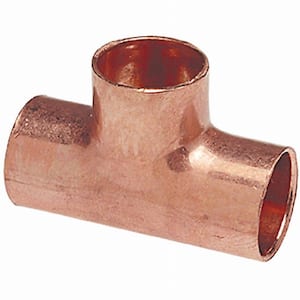Why Copper Products Are Crucial for Electric Applications and Efficient Wiring
Why Copper Products Are Crucial for Electric Applications and Efficient Wiring
Blog Article
Checking Out the Diverse Applications of Copper Products in Modern Industries
Copper items have actually developed themselves as important elements throughout a myriad of modern industries, mainly due to their exceptional conductivity, malleability, and resistance to deterioration. From enhancing the efficiency of electrical systems to playing an essential role in sustainable power innovations, the versatility of copper is evident. Additionally, its recyclability positions it as a sustainable choice in manufacturing and electronics. As sectors significantly prioritize technology and sustainability, the diverse applications of copper necessitate a closer evaluation, particularly regarding their potential effect on future environmental practices and technical advancements.
Electric Applications of Copper
Copper is a vital material in the electric market, making up around 60% of the complete demand for non-ferrous metals around the world - Copper Products. Its premium electric conductivity, which is almost two times that of light weight aluminum, makes it the favored choice for a large range of electrical applications. From electrical wiring systems in domestic and commercial structures to high-voltage power transmission lines, copper guarantees efficiency and reliability in electrical power distribution
Along with wiring, copper is integral to the manufacturing of electrical parts such as transformers, generators, and electric motors. These components take advantage of copper's thermal conductivity and malleability, vital for warm dissipation and efficient efficiency. Moreover, copper's resistance to corrosion improves the lifespan and durability of electric systems, making it a cost-effective solution in the long-term.
The development of renewable resource sources, such as solar and wind power, has actually even more enhanced the demand for copper in electrical applications. As sectors transition towards sustainable power solutions, copper's function ends up being also a lot more important. In general, the versatility and efficiency qualities of copper strengthen its condition as a keystone material within the electric industry, driving development and efficiency throughout numerous applications.
Plumbing and Piping Solutions
In modern-day pipes systems, the choice of materials significantly affects both functionality and longevity. Copper has actually emerged as a favored option due to its one-of-a-kind buildings, consisting of rust resistance and antimicrobial characteristics. These features make certain that copper piping remains risk-free and resilient for transferring potable water, a vital factor to consider in domestic and commercial applications.
Among the essential advantages of copper in plumbing is its capability to endure high temperature levels and stress, making it suitable for a range of applications, from warm water systems to heating and cooling networks. Additionally, copper's adaptability enables for easier setup in complicated piping formats, minimizing the risk of leakages and failures.
Another noteworthy benefit is copper's long life expectancy, commonly going beyond 50 years with proper maintenance. This longevity not only lessens replacement prices but likewise adds to lasting practices by lowering waste. Additionally, copper's recyclability lines up with modern environmental requirements, advertising a round economic climate within the pipes market.
Copper in Renewable Resource
The adaptability of copper expands beyond plumbing applications, playing a vital role in the sustainable energy market. In solar panels, copper is made use of in solar cells and electrical wiring, helping with efficient power conversion and transmission.

Furthermore, as the international demand for electrical vehicles (EVs) boosts, copper's duty in battery systems and billing infrastructure becomes also more significant. The material's ability to conduct electrical power efficiently is indispensable to the efficiency of EV batteries, enhancing range and billing speed.
Copper's Duty in Electronics
Electronic devices making depends greatly on copper's extraordinary properties, particularly its high electrical conductivity and thermal performance. These attributes make copper a suitable choice for a wide variety of electronic components, including connectors, motherboard, and circuitry. The metal's capability to effectively transfer electrical signals makes certain minimal power loss, which is crucial in high-performance electronic devices.
Furthermore, copper's thermal conductivity plays a significant function in heat dissipation, protecting sensitive parts from overheating. This is especially important in modern electronics, where portable designs bring about raised heat generation. Copper is additionally web link favored for its malleability and ductility, permitting it to be easily shaped right into intricate styles that meet the needs of innovative digital applications.
With the rise of customer electronics, telecommunications, and electric lorries, the need for copper in the electronics sector proceeds to grow. As innovations in technology advance, copper continues to be integral to achieving higher performance and dependability in electronic items. Its recyclability even more improves its charm, as suppliers seek lasting services without endangering high quality. Therefore, copper remains a cornerstone product in the ever-expanding area of electronics.
Ingenious Makes Use Of in Manufacturing

One significant application remains in additive manufacturing, where copper-based products are utilized in 3D printing procedures. This allows for the creation of complicated geometries and light-weight elements, particularly in the aerospace and automotive sectors. Furthermore, copper's thermal conductivity makes it a perfect option for warmth exchangers, enhancing effectiveness in commercial cooling systems.
Furthermore, the increase of smart manufacturing has actually seen the incorporation of copper in IoT tools, where its conductive capacities support sophisticated picking up modern technologies. In the world of sustainable power, copper is pivotal in the production of solar panels and wind generators, assisting in extra reliable power conversion and circulation.
As sectors make every effort for sustainability and advancement, copper's adaptability and performance proceed to position it as an essential material, driving developments in manufacturing and contributing to the advancement of smarter, extra effective items.
Final Thought
The important function of copper in sustainable power and its vital function in electronics underscore its relevance in progressing lasting techniques. Collectively, these applications illustrate copper's look at more info vital payment to technological progression and industrial performance in contemporary society.
From enhancing the efficiency of electric systems to playing an important role in sustainable power modern technologies, the adaptability of copper is noticeable. As markets increasingly prioritize innovation and sustainability, the diverse applications of copper require a closer evaluation, particularly regarding their prospective impact on future technical improvements and ecological techniques.
The growth of sustainable energy resources, such as solar and wind power, has better raised the need for copper in electrical applications. Generally, the adaptability and performance qualities of copper strengthen its condition as a cornerstone material within the electrical industry, driving innovation and effectiveness across different applications.
The adaptability of copper prolongs beyond pipes applications, playing a vital role in the sustainable power sector.
Report this page